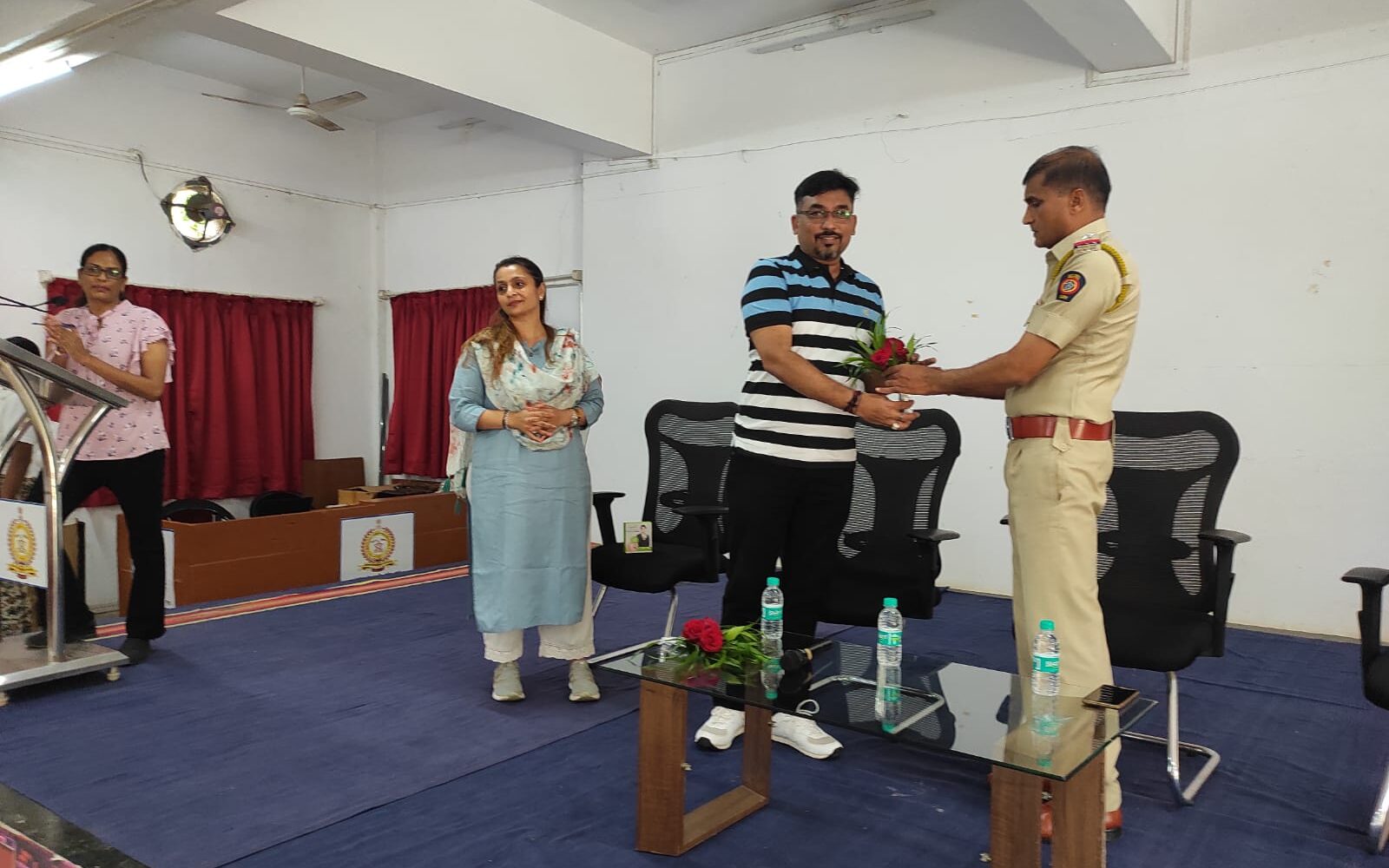Social service makes you feel satisfied

6th August 2022
Menstrual hygiene workshop conducted at Mumbai Police Marol Training Center
Lyvefresh ANANDA an initiative to promote Menstrual Hygiene practice was organized for the new batch at Marol police training center. To organize this workshop for these new batch of 316 women officers was initiated by the principal madam IPS N. AMBICA who had also initiated the similar workshops for 2200 Mumbai Police women officers while she was the DCP of Mumbai Police. This workshop designed by Lyvefresh ANANDA not only educates the women about menstrual hygiene but also tries to support them in creating better lifestyle.
The workshop was conducted by Nikita Gala Parekh – Training Director of Lyvefresh ANANDA which went on for around 2 hours followed by Q&A sessions. All the participants appreciated the program through which they felt that it was a life changing program. The details shared during the program was not only on menstrual hygiene but also shared the in depth knowledge on eco-friendly alternative menstrual product i.e. Menstrual Cup. Menstrual Cup being a reusable product for 5+ years it would save the nature from receiving disposable sanitary pads which takes around more than 500 years to get decompose if left open in nature.
We shall be organizing more such workshops with Mumbai Police Women officers to support them in having better lifestyle even during menstrual days.
The taboo… men talks on menstruation…
It is the need of an hour across India to support every women, so men should talk about menstruation.

We have always seen that there a Bollywood heroes who make films on menstruation or several other issues related to female where the hero being a male is been showcased as a person to take an initiative to solve the issue and also to remove the taboo in case if any across the society for the same issue. But when it comes to real life, still men are having limitation even to talk about the any kind of issues related to women.
One of the prime reasons why menstrual hygiene is neglected is gender inequality. Unequal power distribution between men and women has resulted in women’s and girls’ voices being suppressed and not being heard in decision-making within households, communities, and development programs. Recently, UNFPA Flagship State of World Population Report 2021 titled ‘My Body is My Own’ was launched, and for the first time, United Nations report focused on bodily autonomy. The report stated ‘Bodily autonomy’ as the power to make choices about your body without fear of violence or allowing someone else decides for you. Nearly half the women of 57 developing countries do not possess the right to make decisions regarding their own bodies, which includes using contraception, seeking healthcare services, or even on their sexuality. In few countries where data has been revealed, only 55% of women are entirely free to make choices over healthcare and related services, contraception, and the freedom to say yes or no to sex. According to NFHS-4 (2015-2016), only about 12% of currently married women (18-49 years of age) independently make decisions for their own bodies and healthcare services. For a quarter of women (23%), it is the spouse that mainly takes decisions about healthcare. Therefore these data suggest that men are the decision-makers and women need to depend on men’s advice for their health issues or any other problem. Working in the field of sustainable menstrual hygiene and interacting with both urban and rural women, I found many instances where women are suppressed and not allowed to take decisions or speak up about their problems.
And these boundaries and domination by a male have led to cultural taboos, stigma, and shame around menstruation, including the belief that menstrual blood, and menstruating women themselves, are impure. During menstruation, women and girls are excluded from using water and sanitation facilities in rural areas, are unable to participate fully in any social, educational, productive, and religious activities, and, in some cultures, are even excluded from the home. Therefore, addressing both the practical and the strategic needs of women related to menstruation and menstrual hygiene management requires comprehensive programs that target women and girls and men and boys.
Therefore boys and male teachers in schools need to be informed and should be confident regarding menstruation, menstrual hygiene management, and menstrual products so that they can support female students and create a less stigmatizing environment at school. This is also very important as there are fewer female teachers in secondary schools.
How can we involve men in menstruation?
Gender equality requires a partnership between males and females, and it cannot be achieved without the involvement of men and boys. So we need to involve as many men as possible. Men have an integral part to play in the conversation related to menstruation, as brothers, fathers, uncles, cousins, and teachers. Men and boys might find it awkward to initially discussing menstruation and menstrual hygiene because it is believed that menstruation is completely and pure women’s personal affair. But once men get a good understanding and awareness of menstruation and menstrual hygiene practices, they would get empowered to act. The actions may be advocating for clean and private toilets, role-modeling or creating a period positive environment among the students, communicating care and empathy rather than disgust and shame, or even stitching pads for the women. Also, decision-making power for the health issues should be given to the women themselves.
We will also try to involve men for taking up a workshop for other men or couple together on providing menstrual hygiene management and we hope to remove the taboo.
